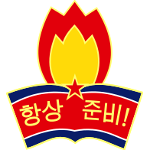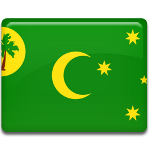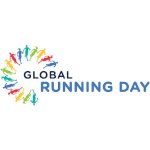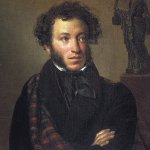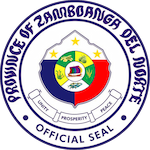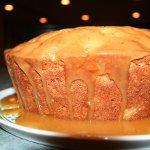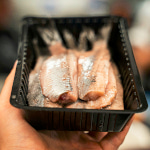Holidays Calendar for June 6, 2018
June 6 is National Day of Sweden. This holiday is regarded as one of the most important ones in the country.
Memorial Day is an official remembrance day in the Republic of Korea (South Korea) held on June 6 each year. It commemorates those who died while in military service during wars or battles, primarily during the Korean War.
Korean Children’s Union Foundation Day is a North Korean public holiday celebrated on June 6. It is dedicated to a children’s organization that can be considered the North Korean counterpart of pioneer movement. On this day, new children usually get admitted to the ranks of the Union.
Most Commonwealth realms (sovereign states within the Commonwealth of Nations that recognize the British monarch as their ceremonial head of state) celebrate the King’s Official Birthday as a public holiday. For example, in the Cocos (Keeling) Islands, it is celebrated on June 6.
World Pest Day, also known as World Pest Awareness Day, is observed on June 6 each year. Its main objective is to raise public awareness of the importance of pest management for the protection of public health.
World Green Roof Day is celebrated annually on June 6. It was created to celebrate green roofs around the world and raise awareness of their numerous benefits for people, urban infrastructure, and the environment.
International Homebirth Day is celebrated every year on June 6. The day was created to promote mothers’ right to choose where to give birth and to recognize the hard work and dedication of home birth midwives.
Global Running Day is observed annually on the first Wednesday of June. It was inaugurated to promote running as one of the most accessible sports and encourage people all over the world to get moving in order to stay active and healthy.
Journalist Day is an official professional holiday in Ukraine celebrated on June 6. It was established in 1994 by President Leonid Kravchuk and has been celebrated each year ever since.
Almost every country in the world has a holiday dedicated to teachers, and Bolivia is no exception. Bolivia's Teachers' Day is celebrated on June 6 each year. It honors Modesto Omiste Tenajeros, a prominent Bolivian writer and educator.
Engineering Day in Argentina is celebrated on June 6 each year. It should not be confused with Engineer's Day which is observed on June 16.
Engineer’s Day in the Republic of China, more commonly known as Taiwan, is celebrated on June 6 every year. It was established to honor one of the most popular occupations in Taiwan.
Every year, Clean Air Day is celebrated in Canada on the first Wednesday in June. Established in 1999, it raises awareness of the environmental and health impacts of air pollution and encourages individuals and organizations to reduce air pollution.
In 2010, the United Nations launched the initiative of the UN Languages Day to promote the UN's official working languages, multilingualism and cultural diversity. UN Russian Language Day is celebrated on June 6.
National Higher Education Day is observed annually on June 6. Its main objectives are to boost the accessibility of higher education in the United States and to prepare students for the challenges they might face so that they are ready to overcome them.
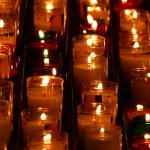 Anniversaries and Memorial Days →
France
Anniversaries and Memorial Days →
France
D-Day in France: Normandy Landing of the Allied Expeditionary Forces
June 6 is a very important day in France. Today is D-Day in France, that is also known as Normandy Landing of the Allied Expeditionary Forces. Different local and federal events are organized to commemorate the day.
The Australian state of Queensland celebrates its birthday on June 6 because on this day in 1859 it officially split from New South Wales. Queensland Day is an official holiday that honors the cultural and historical heritage of the state.
Zamboanga del Norte Day (Araw ng Zamboanga del Norte) is a special non-working holiday in the Philippine province of Zamboanga del Norte. It is observed annually on June 6 to commemorate the province’s founding anniversary.
June 6 is National Applesauce Cake Day. This sweet cake is known as a healthier alternative to usual cakes.
National Yo-Yo Day is observed annually on June 6. It celebrates an iconic toy that has been around for millennia, although the yo-yo in its modern form has been produced since the early 20th century.
Herring Day (Sillens Dag) is celebrated in Sweden on June 6, coinciding with Swedish National Day. However, it is not quite a coincidence; after all, when would it be better to celebrate one of Sweden’s signature foods than on the country’s national day?
National Play Outside Day is celebrated on the first Saturday of every month. It was created to remind everyone of the benefits of spending time outdoors and to encourage children to play outside.
Visually Impaired People Day (Sehbehindertentag) is observed in Germany annually on June 6. It was created by the German Federation of the Blind and Partially Sighted (Deutscher Blinden- und Sehbehindertenverband, DBSV) in 1998.
Festivals for June 6, 2018
- Sydney Film Festival in Sydney, Australia
- Stockholm Early Music Festival in Stockholm, Sweden
- Apple Worldwide Developers Conference (WWDC) in San Jose, USA
- British Urban Film Festival in London, United Kingdom
- Animafest Zagreb in Zagreb, Croatia
- Burning Nest in Exeter, United Kingdom
- Kinotavr Film Festival in Sochi, Russia
- 3 Barons Renaissance Faire in Anchorage, USA
- Highland Renaissance Festival in Eminence, USA
- Festspiele Zürich in Zurich, Switzerland
- Odesa Classics in Odesa, Ukraine
- Beat Film Festival in Moscow, Russia
- Encounters South African International Documentary Festival in Johannesburg, South Africa
- Encounters South African International Documentary Festival in Cape Town, South Africa
- Cincinnati Fringe Festival (Cincy Fringe) in Cincinnati, USA
This Day in History
- 2023 During the Russian invasion of Ukraine, the Kakhovka Dam was breached, causing extensive flooding along the lower Dnipro river. The dam was most likely blown up by the Russian military.
- 2016 Died: Peter Shaffer, English playwright, screenwriter, and novelist. He wrote numerous award-winning plays, including Five Finger Exercise, Equus, and Amadeus.
- 2013 Died: Jerome Karle, American chemist and academic, Nobel Prize in Chemistry laureate for the direct analysis of crystal structures using X-ray scattering techniques.
- 2012 The transit of Venus across the face of the Sun could be seen. Such transits occur periodically, with a pair of transits taking place eight years apart, followed by a gap of 121.5 years.
- 2006 Died: Billy Preston, American singer-songwriter, pianist, and actor. He was recognized as a top session musician in the 1960s, during which he backed Sam Cooke, Little Richard, Ray Charles and The Beatles.
- 1996 Died: George Davis Snell, American geneticist, transplant immunologist, Nobel Prize laureate for his discovery of the genetic factors that determine the possibilities of transplanting tissue from one individual to another.
- 1991 Born: Ashley Park, American actress and musician known for originating the role of Gretchen Wieners in the Broadway musical Mean Girls and playing Mindy Chen on Emily in Paris.
- 1988 Born: Gideon Glick, American actor and screenwriter. He is known for his work on Broadway, as well as for playing Alfie in The Marvelous Mrs. Maisel and Tobias Bell in Étoile.
- 1984 One of the best-selling video games of all time, Tetris, was first released in the USSR.
- 1982 Forces under Israeli Defense Minister Ariel Sharon invade southern Lebanon during Operation Peace for the Galilee, launching the Lebanon War.
- 1981 In the Indian state of Bihar, a passenger train carrying more than 800 passengers derailed while crossing a bridge and plunged into the river Bagmati.
- 1976 Born: Jonathan Nolan, American screenwriter and producer. He is the creator of the CBS science fiction series Person of Interest and co-creator of the HBO science fiction/Western series Westworld.
- 1974 Born: Danny Strong, American actor, screenwriter, director, and producer. As of 2024, he has won two Emmy Awards, two Writers Guild of America Awards, a Producers Guild of America Award.
- 1969 Born: Nina Sosanya, English actress and narrator. She is known for her roles in Teachers, W1A, Last Tango in Halifax, Love Actually, and Good Omens.
- 1968 Died: Robert F. Kennedy, American soldier, lawyer, and politician, the younger brother of President John F. Kennedy. Kennedy was an American icon of liberalism and a leading candidate for the Democratic presidential nomination in the 1968 election.
- 1967 Born: Paul Giamatti, American actor whose accolades include a Primetime Emmy Award and three Golden Globes, as well as nominations for two Academy Awards and a BAFTA.
- 1963 Born: Jason Isaacs, English actor best known for his portrayal of Lucius Malfoy in the Harry Potter film series and Captain Gabriel Lorca in Star Trek: Discovery.
- 1962 Died: Yves Klein, French painter, an important figure in post-war European art. He was the leading member of the French artistic movement of Nouveau réalisme and pioneered the development of performance art.
- 1961 Died: Carl Jung, Swiss psychiatrist and psychotherapist, the founder of analytical psychology. He proposed and developed the concepts that are widely used today, like the collective unconscious, archetypes, extraversion and introversion.
- 1948 Died: Louis Jean Lumière, French director, producer, and screenwriter, one of the first filmmakers in history. Together with his brother, he patented the cinematograph, which allowed simultaneous viewing by multiple parties.
- 1947 Born: Robert Englund, American actor and director, best known for playing the role of Freddy Krueger in the Nightmare on Elm Street films.
- 1946 Died: Gerhart Hauptmann, German author and playwright, Nobel Prize in Literature laureate in recognition of his fruitful, varied and outstanding production in the realm of dramatic art.
- 1944 The Battle of Normandy (code name Operation Overlord) began, launching the successful liberation of German-occupied Western Europe by the Allied forces during World War II.
- 1943 Born: Richard Smalley, American chemist and academic, Nobel Prize in Chemistry laureate for his discovery of buckminsterfullerene, a new form of carbon.
- 1941 Died: Louis Chevrolet, Swiss-American race car driver and businessman, the founder of the Chevrolet Motor Car Company and the Frontenac Motor Corporation, the manufacturer of racing parts for Ford's Model T.
- 1933 Born: Heinrich Rohrer, Swiss physicist and academic, Nobel Prize laureate for designing the scanning tunneling microscope. This instrument allows to get images of surfaces at the atomic level.
- 1918 Born: Edwin G. Krebs, American biochemist and academic, Nobel Prize In Physiology or Medicine laureate for describing how reversible phosphorylation works as a switch to activate proteins and regulate various cellular processes.
- 1918 The Battle of Belleau Wood in WWI: the U.S. Marine Corps suffered its worst single day's casualties while attempting to recapture the wood at Château-Thierry.
- 1912 A volcanic eruption that formed the Novarupta volcano on the Alaska Peninsula began. It was the largest volcanic eruption to occur in the 20th century.
- 1901 Born: Sukarno, Indonesian politician, the 1st President of Indonesia who served in office from 1945 to 1967. He was the leader of Indonesia's national movement during the Dutch colonial period.
- 1892 Born: Donald F. Duncan, Sr., American entrepreneur and inventor, founder of the Duncan Toys Company, primarily known for its yo-yo line.
- 1889 The downtown of Seattle, Washington, was destroyed by fire. After the fire, the streets were rebuilt up to 22 feet above the original street level.
- 1882 A cyclone in the Arabian Sea pushed huge waves into the harbor of Bombay, India, resulting in the deaths of more than 100,000 people.
- 1878 Died: Robert Stirling, Scottish clergyman and inventor best known for inventing the Stirling engine, which is a kind of an external combustion engine.
- 1875 Born: Thomas Mann, German author and critic, Nobel Prize laureate. His epic novels and novellas are noted for their insight into the psychology of the artist and the intellectual.
- 1868 Born: Robert Falcon Scott, English sailor and explorer. He led two expeditions to the Antarctic region: the Discovery Expedition and the ill-fated Terra Nova Expedition.
- 1850 Born: Karl Ferdinand Braun, German-American physicist, Nobel Prize laureate for his contributions to the development of wireless telegraphy.
- 1683 The Ashmolean Museum in Oxford, England, opened as the world's first university museum.
- 1599 Born: Diego Velázquez, Spanish painter, one of the most important painters of the Spanish Golden Age.


